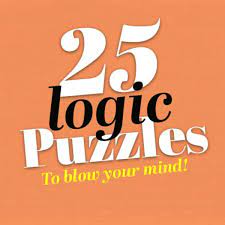Introduction
Middle school is a crucial time for students to improve their logical and critical thinking skills. Engaging them in a variety of activities will enhance their cognitive abilities, while making learning fun. In this article, we will introduce 25 exciting logic activities targeting middle school students.
1. Sudoku – A classic number placement puzzle that requires critical thinking and problem-solving.
2. KenKen Puzzles – Similar to Sudoku, but involving mathematical operations.
3. Logic Grid Puzzles – Solve zebra-style puzzles by eliminating possibilities using a grid system.
4. Brain Teasers – Riddles or puzzles that challenge students to find solutions based on given clues or hints.
5. Lateral Thinking Problems – Encourage creative problem solving by tackling problems from different perspectives.
6. Optical Illusions – Learn about visual perception while improving analytical skills.
7. Tangrams – Assemble seven geometrical shapes into a square or other figures, promoting spatial reasoning.
8. Chess – A strategic board game that enhances pattern recognition and forward thinking.
9. Cryptograms – Decode encrypted text messages by identifying letter frequency patterns and applying logical deduction.
10. If-Then Statements – Formulate hypotheses about cause-and-effect relationships using conditional reasoning exercises.
11. Contrapositive Reasoning – Challenge students to determine a statement’s contrapositive and understand its implications.
12. Coding Challenges – Introduce basic programming concepts like algorithms, loops and conditionals, encouraging computational thinking.
13. Debates – Engage in structured discussions about controversial topics, building critical thinking and persuasive communication skills.
14. Science Fair Projects – Apply the Scientific Method to create hypothesis-driven experiments using logic and reasoning.
15. Escape Room Activities – Develop teamwork and problem-solving skills by cracking codes, finding clues, and deciphering messages to escape within a set time limit.
16. Robot Building Kits – Construct programmable robots using logic and mechanical principles.
17. Geocaching – A GPS-based treasure hunting activity that teaches navigation, mapping and planning skills.
18. Detective Club Activities – Read mystery books or watch detective movies, encouraging students to scrutinize evidence and solve cases.
19. Mock Trials – Simulate legal proceedings to evaluate evidence, deduce conclusions, and present logical arguments.
20. Crossword Puzzles – Solve clues to complete a grid of interlocked words, improving vocabulary and reasoning.
21. Hexaflexagons – Create folding paper structures that reveal hidden surfaces, promoting pattern recognition and spatial skills.
22. Pattern Recognition Games – Identify patterns in sequences or sets of items using logic and deduction.
23. Brainwriting Exercises – Encourage creative ideas by writing down individual thoughts on a given topic then building upon them collectively.
24. Estimation Challenges – Practice close estimation through mental calculation and logical reasoning of real-life scenarios.
25. Origami Art – Follow systematic instructions to fold intricate 3D figures from paper, improving spatial reasoning and attention to detail.
Conclusion
Cultivating logical thinking and problem-solving skills is essential for middle school students as they prepare for more complex academic challenges ahead. These 25 logic activities provide diverse opportunities for students to sharpen their cognitive abilities while having fun in the process.





